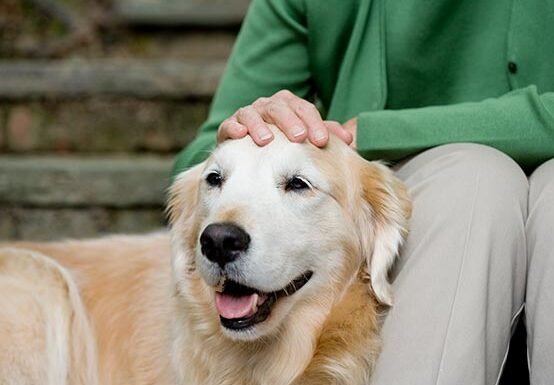National Senior Pet Month: Prioritize Your Pet’s Health in Their Golden Years
Tuscawilla Animal hospital

November is National Senior Pet Awareness Month: Prioritize Your Pet’s Health in Their Golden Years
As our beloved pets grow older, their needs change, just like ours do. November is National Senior Pet Awareness Month, an opportunity to highlight the unique health requirements of senior pets and the importance of proactive care. Regular wellness exams, routine blood work, and screening for chronic conditions are essential to ensure that our furry family members enjoy their golden years to the fullest.
Why Senior Pets Need Specialized Care
Senior pets are considered those aged seven and older, though this varies by breed and size. At this stage, pets are more susceptible to age-related conditions like arthritis, kidney disease, diabetes, and heart disease. Unfortunately, many of these conditions can progress silently, showing symptoms only when they are advanced.
Routine health screenings, including blood work, are invaluable in detecting potential health concerns early, allowing for timely intervention. Early diagnosis often leads to more effective treatments, better outcomes, and a higher quality of life for your pet.

The Importance of Bi-Annual Exams
Twice-yearly examinations are especially critical for senior pets. Unlike younger pets, where annual exams may suffice, senior pets can experience significant health changes in just a few months. During a bi-annual exam, our veterinarians:
- Perform a thorough physical examination to check for changes in weight, mobility, and organ function.
- Monitor for early signs of chronic conditions such as heart murmurs, dental disease, or skin abnormalities.
- Discuss any behavioral or appetite changes that may indicate underlying health issues.
By keeping a close eye on your pet’s health, we can address potential problems before they become more serious.

Routine Blood Work: A Window Into Their Health
Annual to bi-annual blood work is a cornerstone of senior pet care. This testing provides crucial insights into your pet’s internal health, often revealing issues that are not visible during a physical exam. Common panels include:
- Complete Blood Count (CBC): Screens for anemia, infections, and clotting disorders.
- Chemistry Panel: Evaluates organ function, including the kidneys, liver, and pancreas, and checks for electrolyte imbalances.
- Thyroid Testing: Identifies conditions like hypothyroidism in dogs or hyperthyroidism in cats.
Routine blood work helps us monitor trends over time, allowing us to detect subtle changes and adjust care as needed.
Chronic Conditions and Early Intervention
Some of the most common health issues in senior pets include:
- Arthritis: Painful joint inflammation that can limit mobility and quality of life. Early intervention with supplements, medications, or weight management can slow progression.
- Kidney Disease: A common condition in aging pets, often managed effectively with dietary changes, medications, and fluid therapy when caught early.
- Diabetes: Requires careful monitoring and a combination of dietary management and insulin therapy.
- Cancer: Regular check-ups can help detect lumps or other signs early, leading to better treatment outcomes.
- Cataracts: Abnormal thickening of the lens that can lead to intraocular inflammation and subsequent glaucoma. Early intervention with ophthalmic anti-inflammatories can reduce the risk of glaucoma.
The key to managing these conditions is catching them early and tailoring treatment to your pet’s unique needs.

How You Can Support Your Senior Pet
In addition to regular veterinary care, there are steps you can take at home to enhance your senior pet’s well-being:
Comfort: Provide a comfortable bed, easy access to food and water, and an environment free of obstacles to prevent injury.
Nutrition: Feed a high-quality diet formulated for senior pets to address their changing nutritional needs.
Exercise: Maintain a gentle exercise routine to keep your pet active, at a health weight, and supporting joint health.
Celebrate Your Senior Pet
Senior pets have a lifetime of love to give and deserve the best care we can provide. By scheduling bi-annual exams, keeping up with routine blood work, and staying vigilant about changes in their health, you can help your pet enjoy their golden years in comfort and happiness.
If your senior pet hasn’t had a check-up in the past six months or needs routine blood work, don’t wait—contact us today to schedule an appointment. Together, we can ensure your furry friend stays happy and healthy for years to come.
